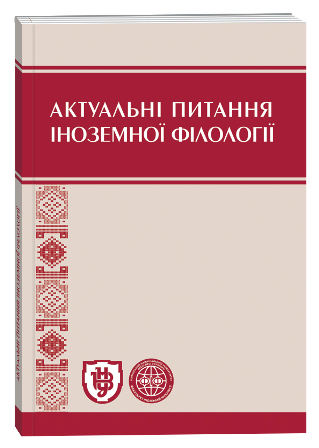INSTANT ACTIONS IN MODERN ENGLISH: ACHIEVEMENTS VS SEMELFACTIVES
Keywords:
aspectuality, telicity, iteration, semelfactive, achievement, accomplishment, activity, stateAbstract
The article focuses on two aspectual classes of predicates: achievements and semelfactives. The approaches to their differentiation are quite controversial. In the history of linguistics semelfactives were treated either as a subclass of achievements or activities. The article argues that they constitute an independent aspectual class. The examples from the British national corpus illustrate and ground the observations made in the course of the analysis. Semelfactives and achievements are defined as telic, stageless events. The telicity of the achievement class lies in their ability to denote an event of change whereas the telicity of semelfactives is explained by their natural atomicity. Since the semelfactive verbs do not denote a change they can be summed into one singular iterative event (S-summing operation). The stages of this event are lexically accessible. This fact differentiates them from the class of activities. A semelfactive verb may denote both an action of single occurrence and a multiplicative action. Light verb constructions, due to the presence of a pronominal modifier, eliminate this ambiguity. An instant action can be expressed by accomplishments and even states depending on the context. The default aspectual class of a predicate changes under the influence of context: an aspectual coercion takes place.
References
Колпакова Г. Ю. Категоріальна поліфункціональність сталих дієслівно-іменникових словосполучень / Г. Ю. Колпакова // Наукові записки Міжнар. гуманітар. ун-ту. – 2010. – Вип. 15. – С. 91–98.
Колпакова Г. Ю. Імпліцитна аспектуальна коерсія сталих дієслівно-іменникових словосполучень: корпусне дослідження / Г. Ю. Колпакова // Іноземна філологія. – 2011. – Вип. 123. – С. 57–63.
Храковский В. С. Типология семельфактива / В. С. Храковский // Типология вида: проблемы, поиски, решения : тезисы Междунар. науч. конф. / под. ред. М. Ю. Чертковой. – М., 1998. – С. 485–490.
Comrie B. Aspect: An Introduction to Verbal Aspect and Related Problems / Bernard Comrie. – Cambridge : Cambridge University, 1976. – 142 p.
Croft W. Verbs: Aspect and Argument Structure [Електронний ресурс] / William Croft. – 2010. – Режим доступу : http://citeseerx.ist.psu.edu/viewdoc/download;jsessionid.
Dölling J. Aspectual Coercion and Eventuality Structure / Johannes Dölling // Events, Arguments, and Aspects: Topics in the Semantics of Verbs / ed. by K. Robering. – Amsterdam ; Philadelphia : John Benjamins, 2014. – P. 189–226.
Kolpakova H. Corpus-Based Contrastive Study of Fixed Verbo-Nominal Phrases and Free Word-Combinations / Halyna Kolpakova // Syntax is Cognitive Grammar : Proceedings of II International Conference (9–11 April 2010) / ed. by Professor Bogusław Bierwiaczonek. – Częstochowa : The College of Foreign Languages in Częstochowa, 2010. – P. 25.
Moens M. Temporal Ontology and Temporal Reference / Marc Moens, Mark Steedman // Computational Linguistics. – 1988. – Vol. 14. – P. 15–28.
Rothstein S. Structuring Events: A Study in the Semantics of Lexical Aspect / Susan Rothstein. – Oxford : Blackwell, 2004. – 206 p.
Rothstein S. Telicity, Atomicity and the Vendler Classification of Verbs / Susan Rothstein // Theoretical and Crosslinguistic Approaches to the Semantics of Aspect / ed. by S. Rothstein. – Amsterdam ; Philadelphia : John Benjamins, 2008 – P. 43–77.
Smith C. S. The Parameter of Aspect / Carlota S. Smith. – Dordrecht : Kluwer Academic Publishers, 1997 – 349 p.
Vendler Z. Linguistics in Philosophy / Zeno Vendler. – N. Y. : Cornell University Press, 1967. – 300 р.








